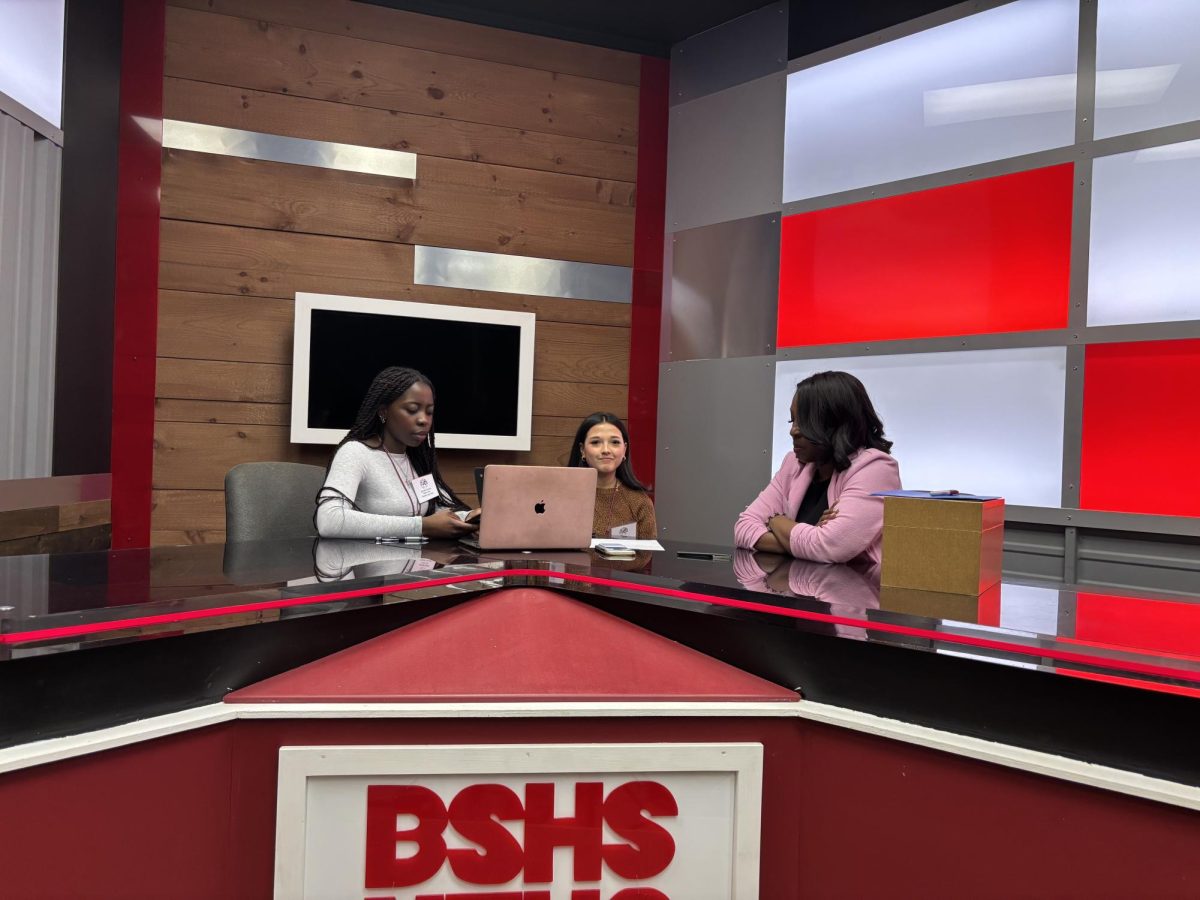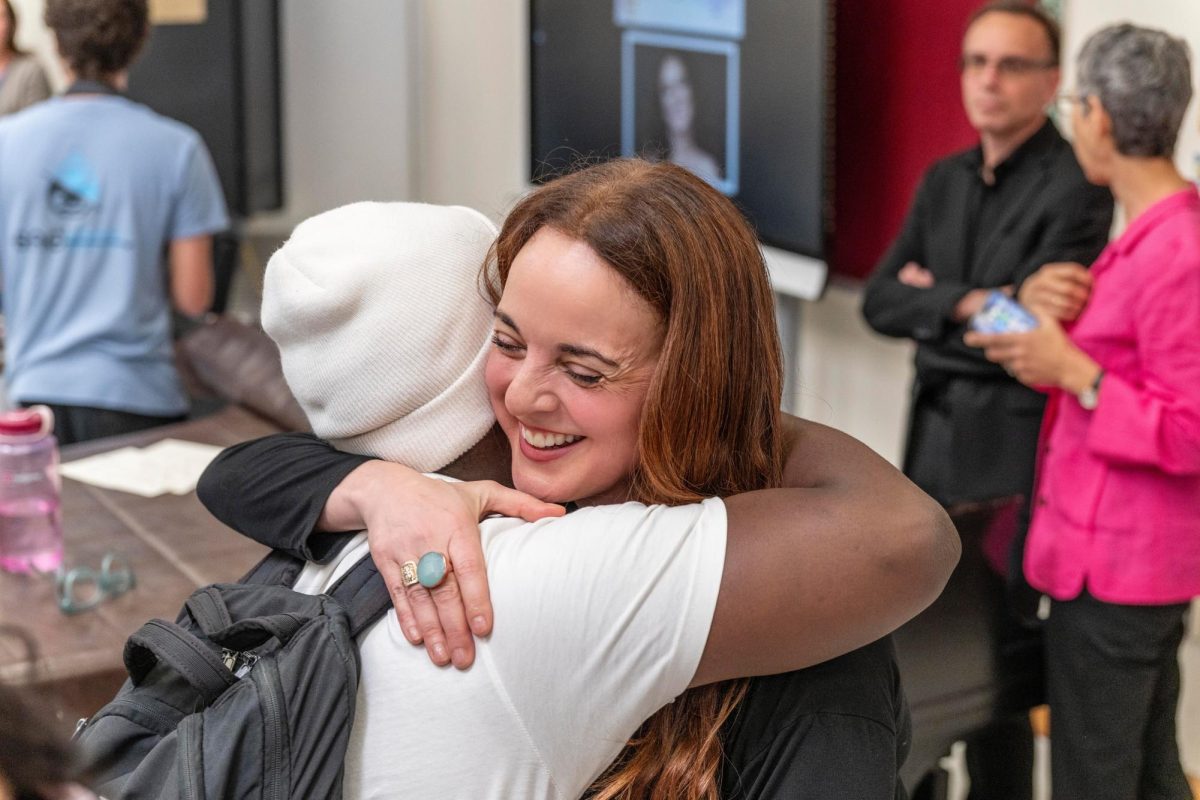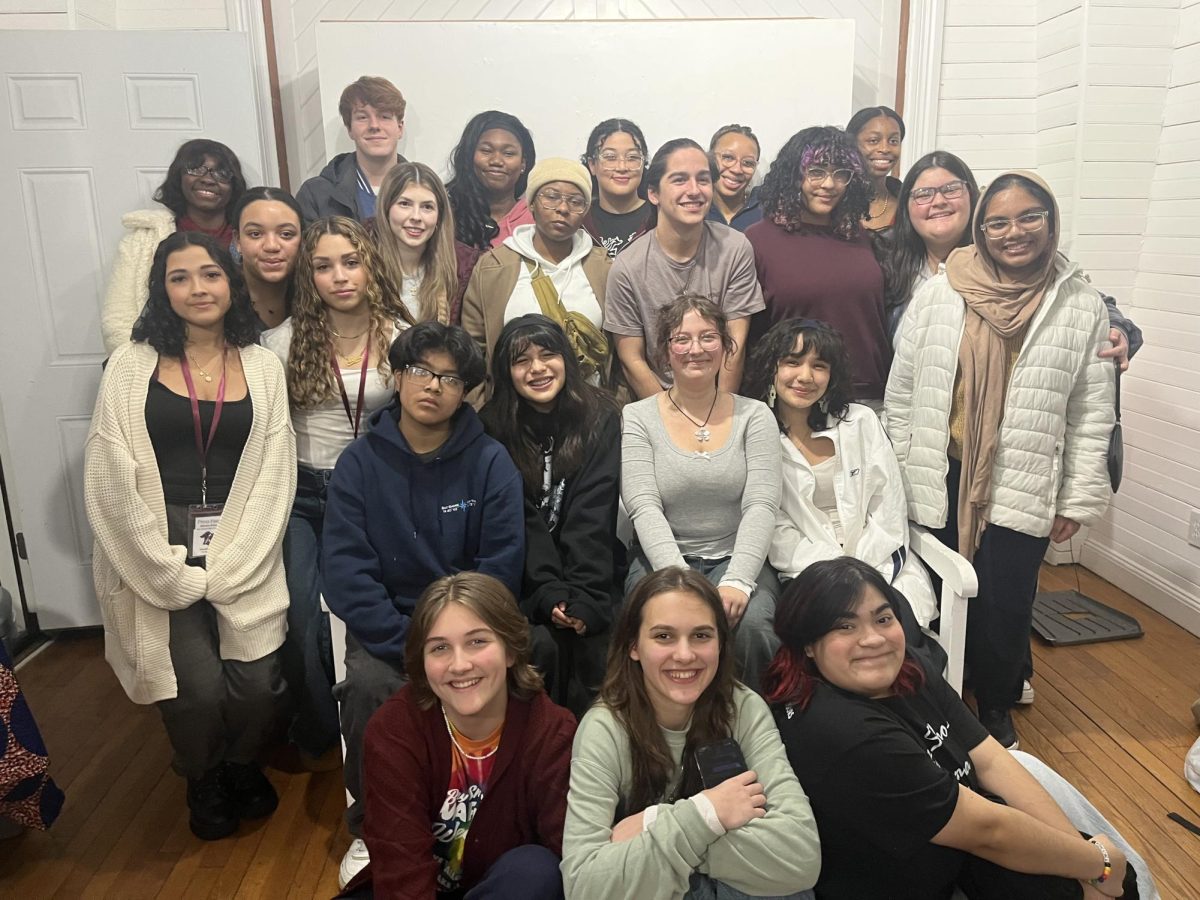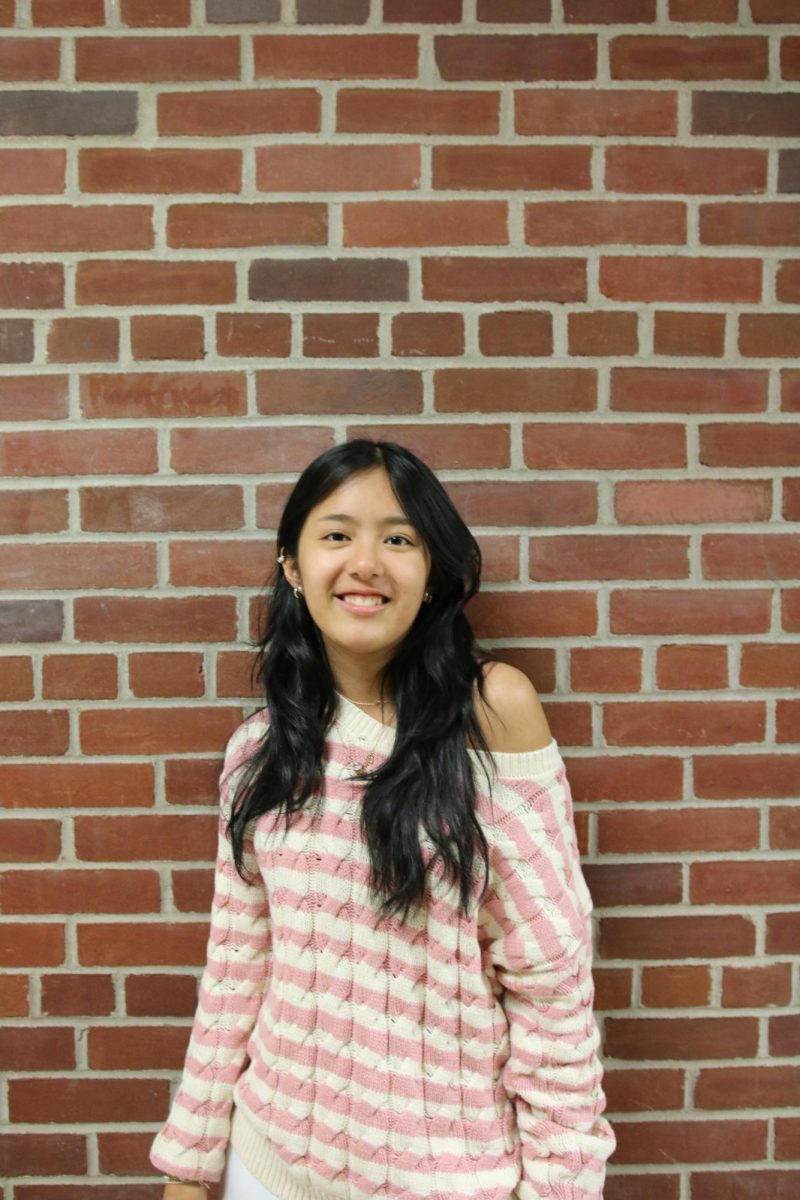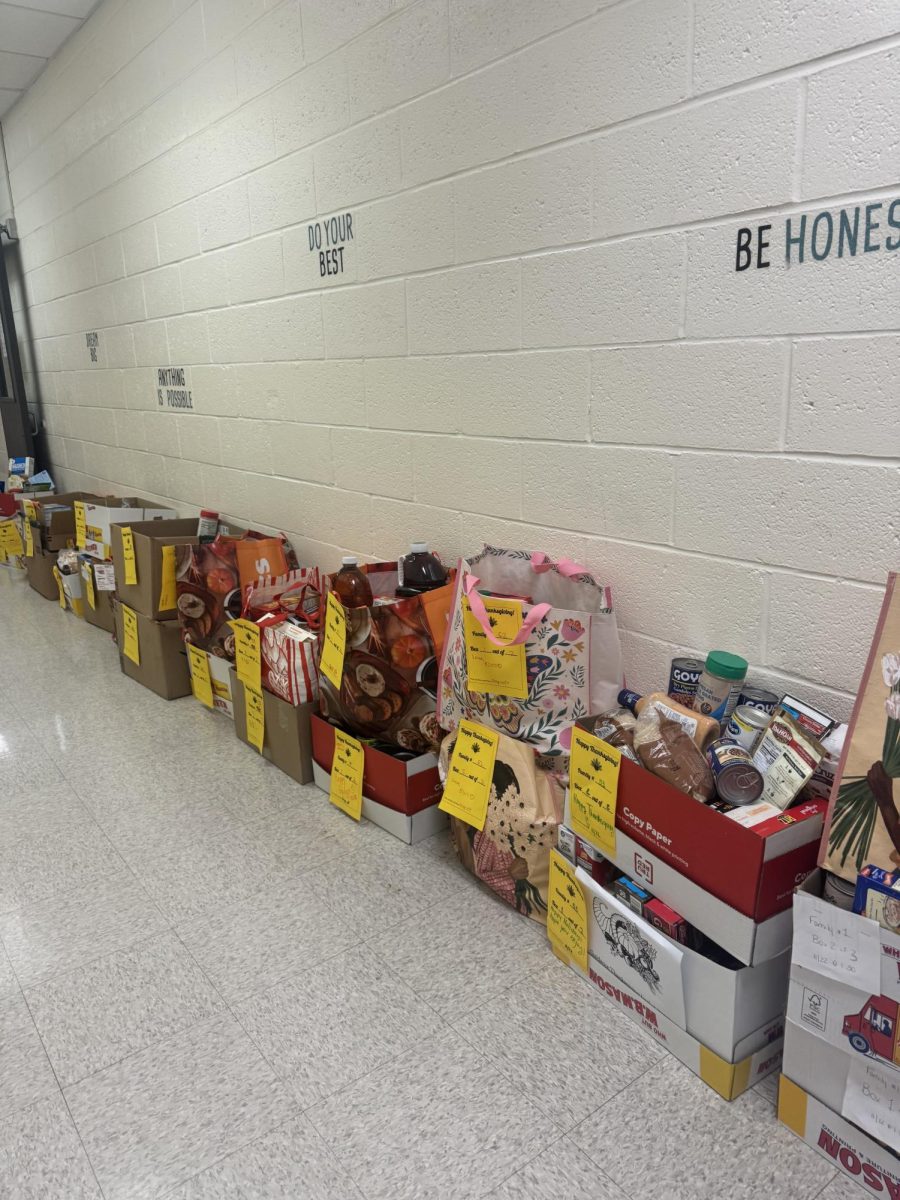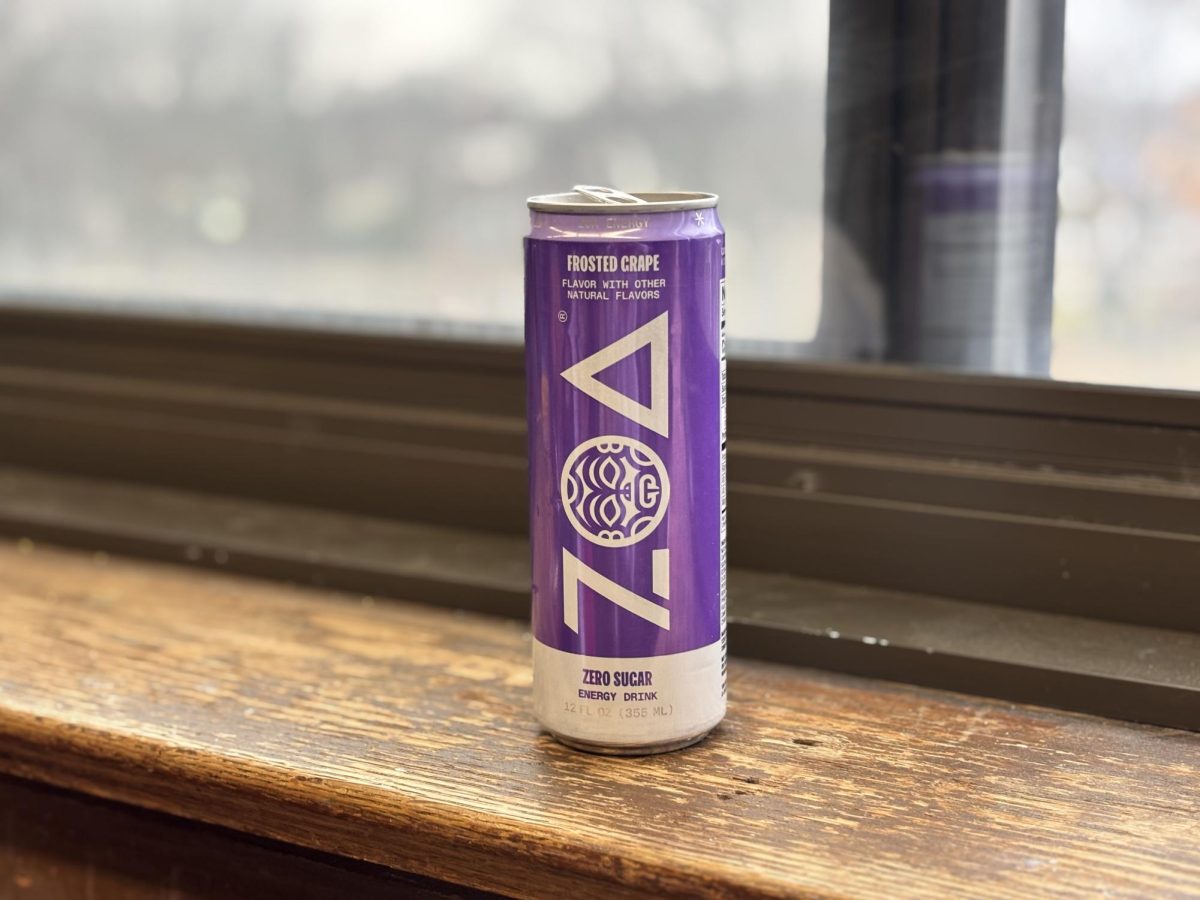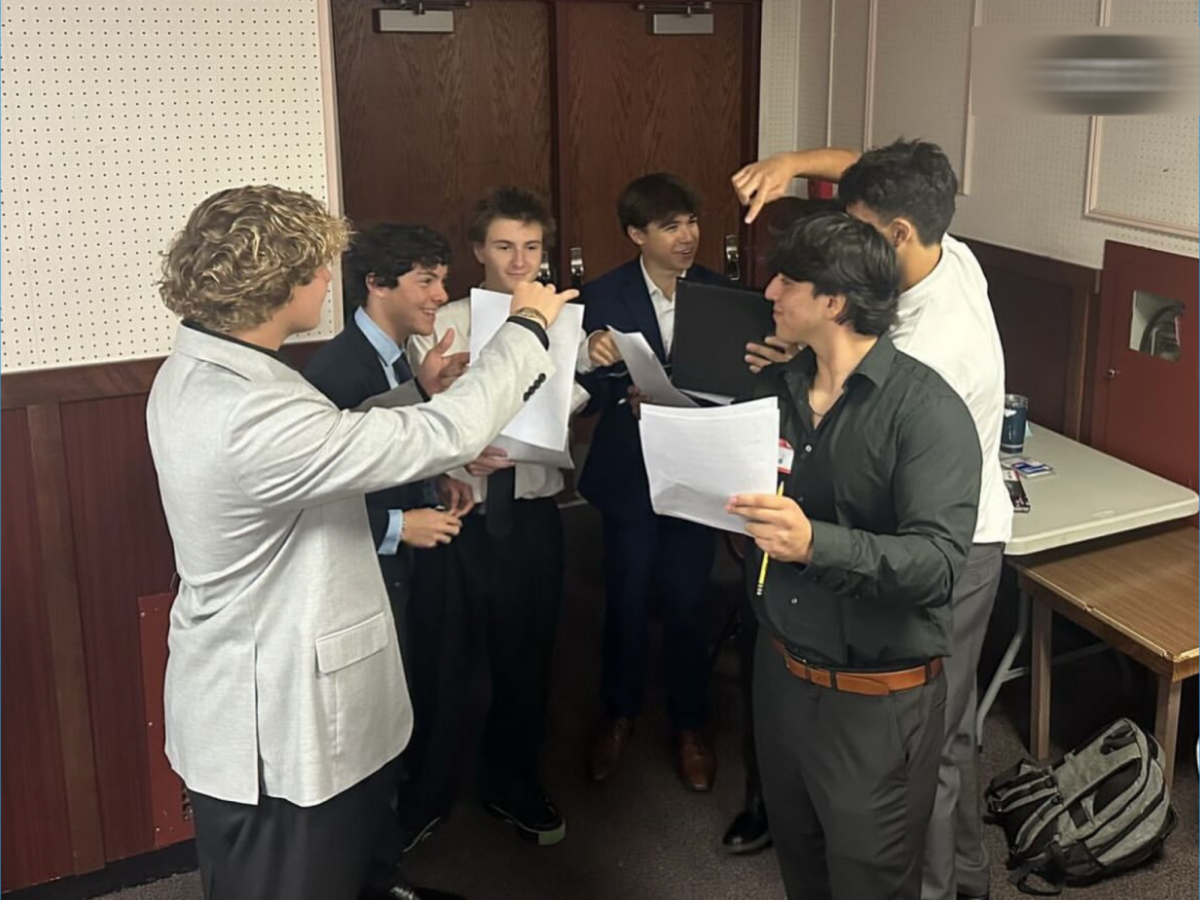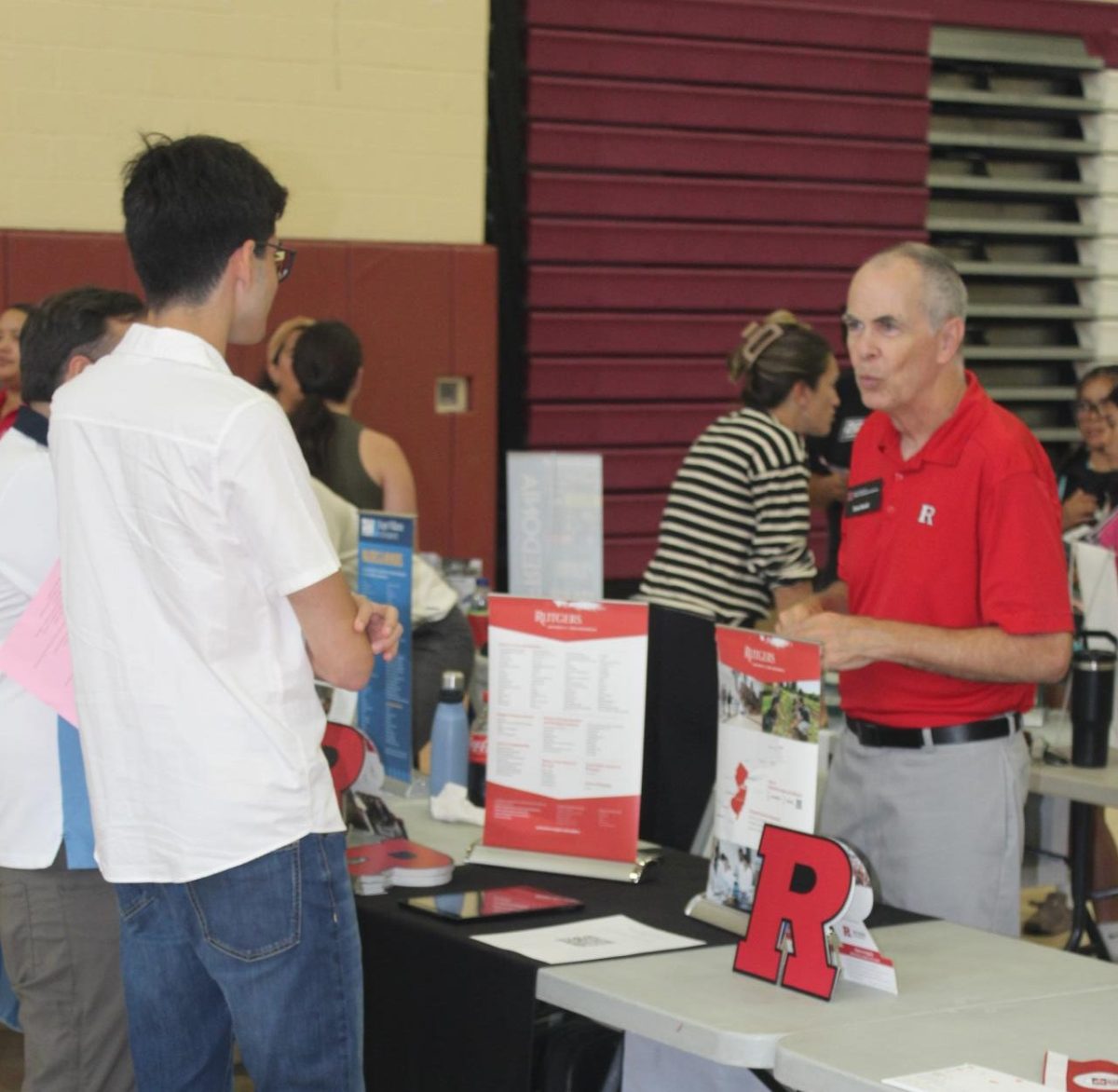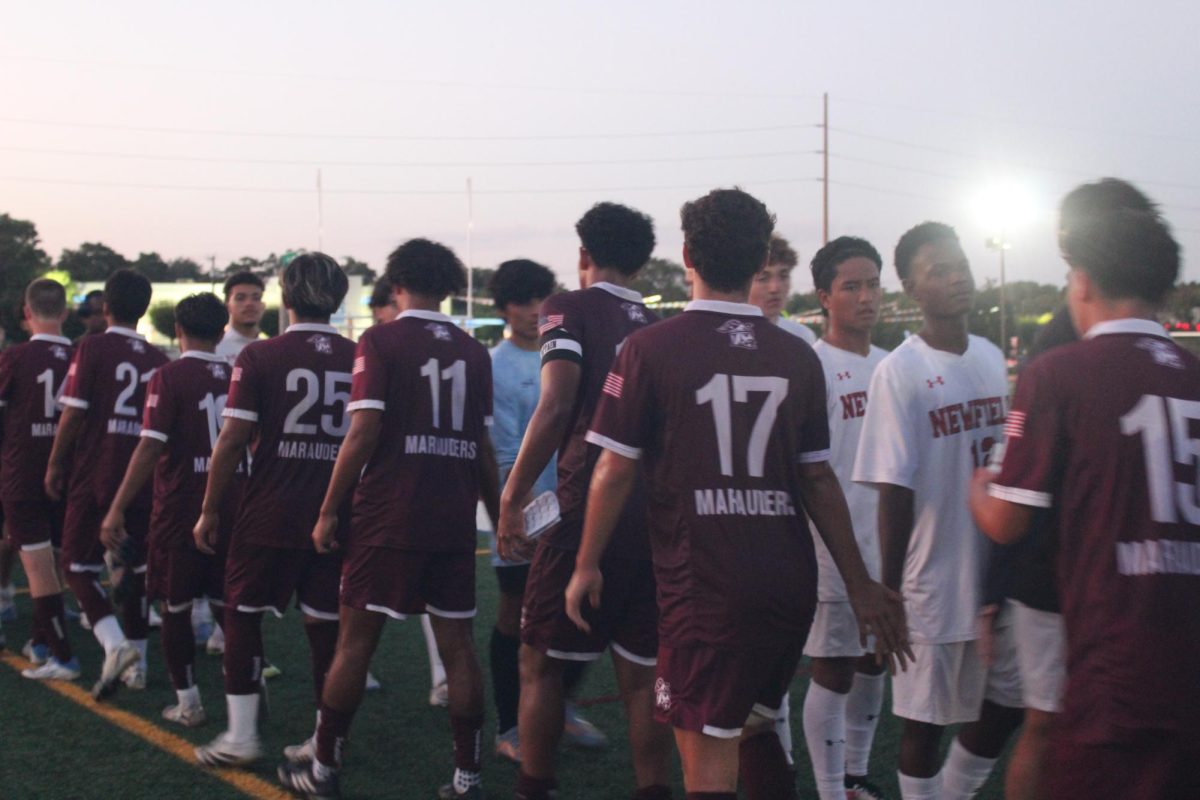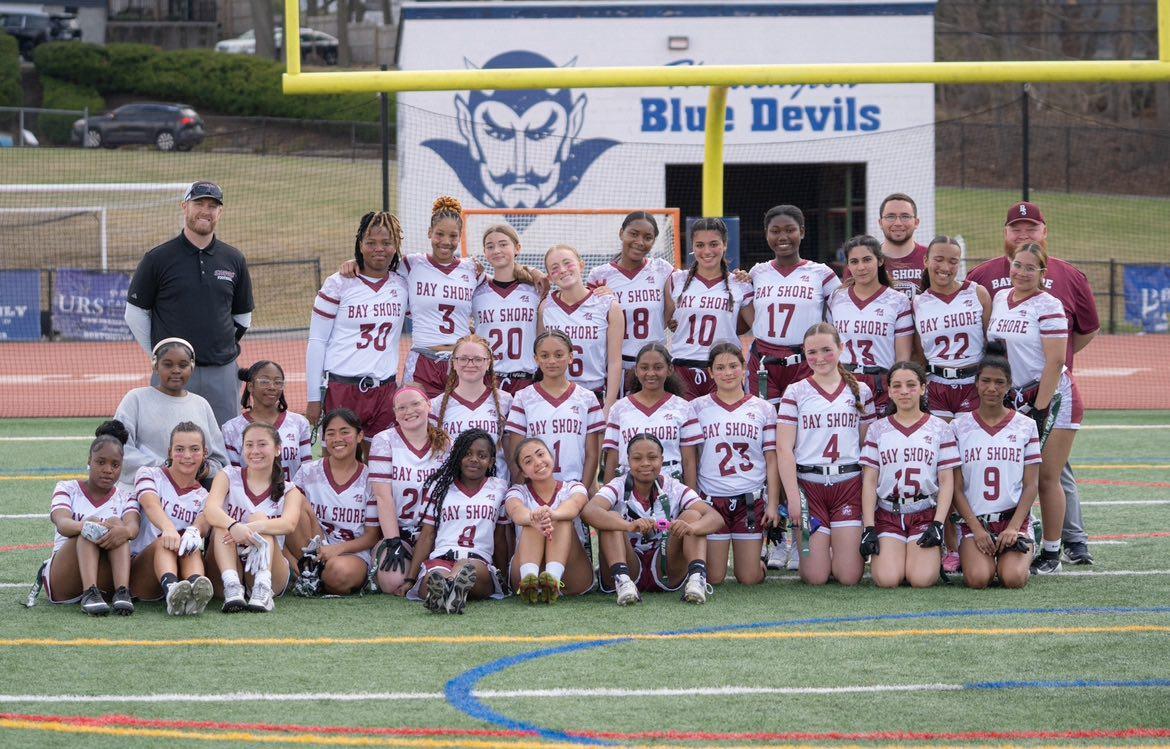On March 28, Bay Shore High School had the honor of hosting author, journalist, and Emmy award winner Cheryl Wills, as Ethnic Pen’s keynote speaker. During her presentation, Wills shared the story of how she brought honor to her late great-great-great grandfather Sandy Wills, a Civil War veteran. After an impactful and immersive presentation, Wills shared more about her journey, difficulties and inspiration in an interview.
Growing up, Wills had many family members around her. Being surrounded by all four grandparents, her ample curiosity consistently pushed her to ask questions about their family’s ancestry.
“I was the only one asking questions when I was a child, I guess it’s because I was born a journalist,” Wills said.
She credits her two grandmothers, Opal and Sally, in particular, as female inspiration for herself. Although she didn’t know that she was the ancestor of a Civil War veteran at the time, this same curiosity and inspiration is what later sparked this discovery.
“When I was growing up, I had both of my grandmothers, and both were domestics, but they had the talent to be anything they wanted to be,” Wills said. “But society had pushed them into a box saying essentially ‘Okay you’re a black woman these are the jobs available to you.’”
Seeing how her own grandmothers were suppressed, Wills had direct motivation not to have the same fate.
“And I saw that in real time, I saw how they grew old and died with all of these gifts that they could not express, and that broke my heart,” Wills said. “What motivates me as a woman, is to be a realization of their dreams, and to do what society wouldn’t let them do.”
As Wills searched deeper into documents of her late grandfather, she discovered the Mooreland Plantation where he was enslaved. After searching for fragments of her ancestors’ lost past, Wills finally had a definite place to find answers.
Upon arriving at the plantation in Tennessee, Wills made sure to approach the family respectfully and unassumingly as she knew she was there for more than just a visit.
“I went there very professionally and calmly, you see me smiling in that picture, but I was boiling because I know what happened on that plantation,” Wills said. “When you want something you have to play chess and not checkers, and I played chess.”
Wills even took a picture with them, smiling alongside them as if there weren’t centuries of history between the two families. Yet the Moore family had no idea Wills’ family had been there.
“When I went there they were just so happy, their lives were so wonderful and that was all on the backs of my family’s labor,” Wills said. “I know that that family got away with everything, I know that my family worked their fingers to the bone and not an inch of wealth was passed down and it wasn’t because they were lazy, it was because it was systematic.”
After revealing to the Moore family that she was there to see if she could find any information about her ancestors, the family became apprehensive. Though, she made it clear to them that she didn’t have anything personal against them, she just needed to find closure. While touring the plantation, Wills saw a grassy secluded hill that the Moores explained they were always advised against going near as it was grounds for the remains of formerly enslaved people. The hill had unmarked graves and was poorly kept which starkly juxtaposed the dedicated cemetery with marked graves of the late Moores that were responsible for Wills’ ancestors’ enslavement.
Wills carries the last name of enslaver Edmund Wills and as an advocate of her family’s history with enslavement, many people have asked Wills why she chooses to keep the name. When asked this, Wills explains why it’s important to her.
“I carry his last name as evidence that a crime has been committed against my family ‘Why would you need evidence?’” Wills said. “Because as you see right now people are writing narratives. […] [Slavery] was a crime against humanity, and every time you say Cheryl Wills that is evidence of the crime, so I am holding that name as evidence that my family’s name was stolen from me.”
Wills knew that getting a proper burial for Sandy Wills was something bigger than herself; it was symbolic of reclaiming her past and legacy. Knowing this, she decided to have the land excavated by archaeologists. Although it wasn’t guaranteed that she’d find any answers, and her family wasn’t very optimistic, she had to at least try.
“No one could guarantee what the outcome would be,” Wills said. “[My family] told me to let it go, but I refused to let it go.”
Before the state allowed Wills to dig up the land, they required that the proposal be put in the newspaper for four weeks and if one person from Haywood County, Tennessee objected to the excavation, the entire operation would be swiftly shut down. Wills was undoubtedly surprised that not even one person within the former Jim Crow town petitioned the proposal. She even considered the fact that someone from the Moore family could plant someone to petition against it. But for four straight weeks, not a single person objected.
“That’s why I felt like this was divine, I felt that it was bigger than me,” Wills said. “This had the force of something powerful.”
Although the Moores eventually came around to Wills’ mission, they were still confused on why she felt it was necessary. This led Wills to share her perspective with them as a way to make them understand the best they could.
“I remember having dinner with them once and they said ‘Respectfully, I just don’t understand why,’ and I said ‘When you go to that hill you see the graves of John Moore and Judith Moore, you see your ancestors, why can’t I have that same privilege?’ ‘My family is under leaves and trees,’” Wills said.
Furthermore, Wills emphasized to them that her grandfather never got a proper burial or acknowledgement for his service. “‘This is a stain on the nation, he served this country and he wasn’t even recognized as a citizen of the United States.’”
“‘If I can help him even in death, I will,’” Wills said. “When I drilled that into their heads, they finally came around.”
Ultimately, Wills was able to uncover and distinguish the remains of Sandy Wills among the graves of 11 others, one of which is presumed to belong to Sandy Wills’ wife, Emma Wills. On May 1, 2024, the archaeologists dug all the way down. On May 3, 2024, they found the teeth of Sandy Wills, and on Aug. 8 and 9, 2024, Cheryl Wills was finally able to honor Sandy Wills as an American hero. Ever since uncovering her family’s past and legacy, Wills has felt a new sense of purpose.
“I feel like a changed woman, I feel like no one can stop me because I know what my family has been through,” Wills said. “I have the DNA of a war hero in me.”
Although Cheryl Wills’ story is unique, its message is not unfamiliar to many people, that feeling of not knowing where you come from and overcoming hindrances to one’s individualism and expression.
“Always express your individual self, always be proud, don’t ever let anyone pass judgment on you,” Wills said. “That was my message to Bay Shore High School today. Your legacy is your superpower.”
Wills also illustrates the importance of acknowledging uncomfortable topics and challenges as it’s integral for growth and understanding.
“Little Cheryl sitting in Uniondale High School didn’t know her own legacy. Learning about the Civil War, her great-great-great grandfather was there and Cheryl was unaware because everyone had to be comfortable,” Wills said. “The truth is sometimes uncomfortable, and that’s how my legacy was lost in the first place.”
“That was my message to Bay Shore High School: have uncomfortable conversations when you have to, be respectful always, but if someone tries to change you for their benefit, make them uncomfortable,” Wills said.
Cheryl Wills has been able to use this mindset to continue telling her story around the nation while writing books about both Sandy and Emma Wills.
“I have tapped into the power of Sandy Wills. I have tapped into the power of Emma Wills,” Wills said. “It’s sometimes easy to stay with the masses, stay in your place, but I have decided that I don’t have a place, there is no box for me to fit in.”

